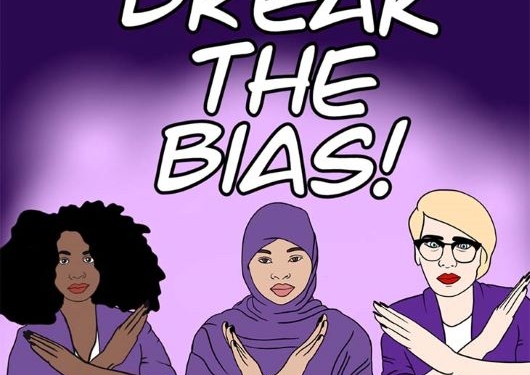Curbing the high rate of gender-based violence against persons with disabilities has been an issue of concern to different stakeholders, part of the reason the 2022 International Women’s Day is aimed at finding a sustainable solution for Gender-Based Violence. Themed: “Gender equality today for a sustainable tomorrow”, IWD2022 is a day to highlight the hardworking women who despite societal misconceptions, are breaking the barriers in different walks of life.
We have women all over the world that have made and continue to create a legacy for themselves that would stand the test of time. Outstanding women have left their mark in science and tech, created solutions aimed at the prosperity of humanity, and championed movements to alleviate poverty in rural areas; but sadly, the statistics on factors that may hinder women from achieving their highest potential such as Gender-Based Violence remains a thing for concern.
According to the United Nations, more than 640 million women have been subjected to intimate partner violence. Globally, violence against women disproportionately affects low- and lower-middle-income countries and regions. Thirty-seven percent of women aged 15 to 49 living in countries classified by the Sustainable Development Goals as “least developed” have been subject to physical and/or sexual intimate partner violence in their life. These heartbreaking numbers are even mainly for persons without disabilities. What if we narrow it down to the vulnerable of the vulnerable?
Disability has its stigma, pervasive in every society, but in parts of Africa, where civilization hasn’t left its mark, discrimination towards persons with disability can be particularly ”regular” due to their lack of understanding of certain conditions. Persons with disability are often considered weak, worthless, and in some cases subhuman by their societies. Disability-based violence is linked to this social stigma and the power imbalances between persons with and without disabilities. Some societies view disability as a curse or a punishment from God. Consequently, persons with disabilities may be reviled or pitied, but are overall not considered as persons deserving equal rights. In some communities in Nigeria for example, when they see a person fair of skin, with gold-tinged hair, they are considered to be perfect for a sacrificial offering for money ritual. This is a sad reality.
Yes! To attain a sustainable tomorrow, we need gender equality today. But how about equality between persons with, and without disabilities?
In Nigeria, we have laws that protect persons with disability from harm, and other forms of violence such as the Violence Against Persons Prohibition Act, the Discrimination Against Persons With Disabilities (Prohibition) act, the Lagos Special Persons Law, and the United Nations Convention on the Rights of Persons with Disabilities. Despite all these laws in existence, we still have cases of violence against persons with disability being rampant in the country. From companies that deny a qualified person a job simply because of their disability to airlines not permitting persons with disability passage to board their flights; again, simply because of their disability. Sexual assault of persons with disability by caregivers is still a thing with the victims not knowing how to report their abusers due to fear, lack of information, low self-esteem, etc.
We all can stop the blame game of who is responsible for Disability-Based Violence, take it upon ourselves, and see it as a collective effort towards building a society for the coming generations.
A sustainable tomorrow will be possible only if there is equality of genders, and also, equality of persons with disabilities, and persons without disabilities.

